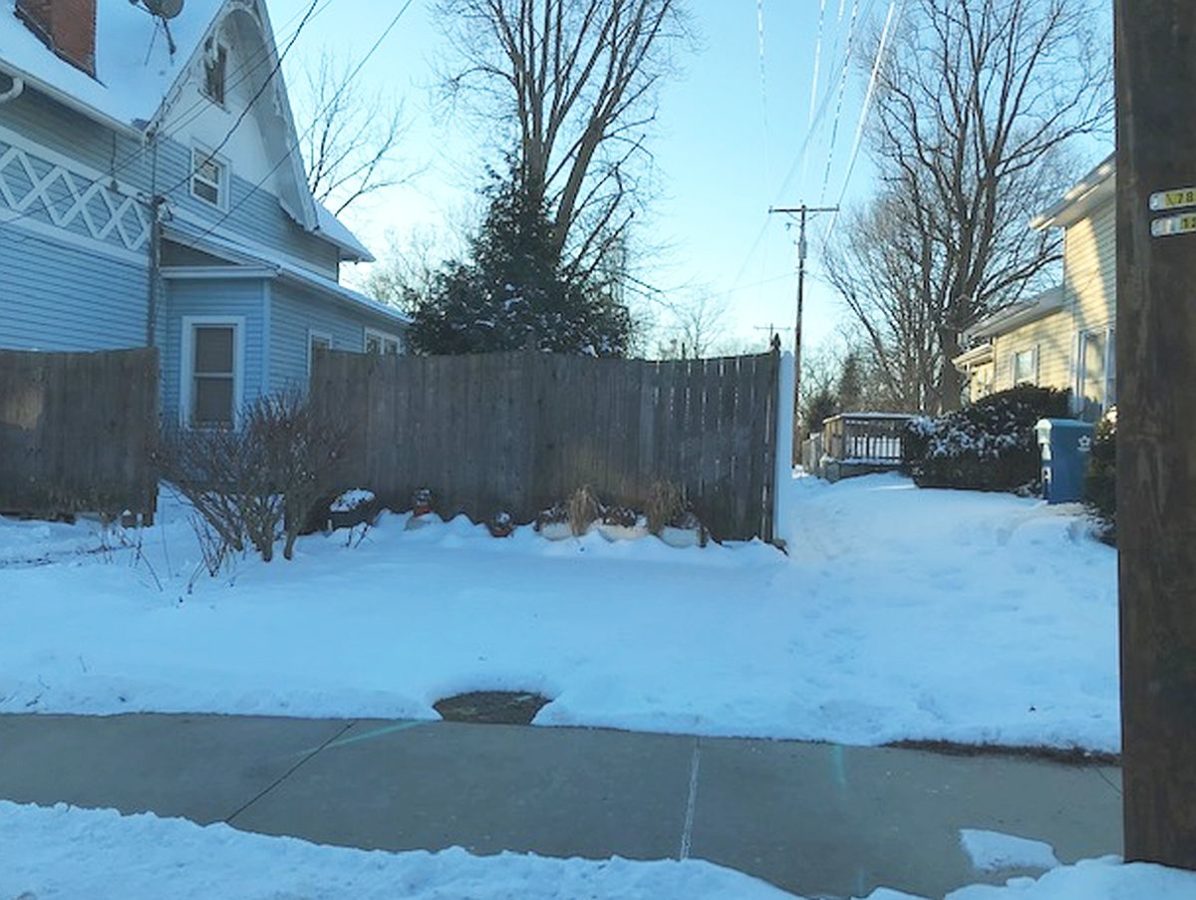Marshall County Circuit Court Judge Curtis Palmer released his decision in the case the City of Plymouth brought to the court against Philip and Audrey Blessman.
The Court ruled in the City’s favor but allowed the Blessman’s until April 30th to clear the alley. If they haven’t done so by that time the City of Plymouth can clear it.
This matter came before the Court on February 15, for a bench trial on the Plaintiff’s Complaint for a Temporary and Permanent Injunction. The trial was held via Zoom. The defendants, Philip Blessman and Audrey Blessman, representing themselves, by video.
The court heard the evidence and the arguments of the parties and took all matters under advisement. Having now considered the arguments, the pleadings, the evidence produced at trial, and being duly advised in the premises, the Court issues the following Findings, Conclusions and Judgement: the defendants own a residential property at 114 and 116 S. Liberty St. in Plymouth. Although the property has two street addresses, it is one structure. Along the north side of the Blessman property is a twelve-foot strip of land running from Liberty Street to the west for approximately 360 feet. This twelve-foot strip of land was conveyed to the City of Plymouth in 1892 “for the use of the public as an alley.” In an April, 2000 warranty deed from Ada Petill to Sam and Judy Goebel, no mention was made of the twelve-foot strip, nor any alley or easement. In 2004, the Goebel’s conveyed the property to the Defendant Blessman’s via a warranty deed which also contained no reference to the twelve foot strip, nor any alley or easement. However, prior to closing, the Goebel’s had furnished to the Blessman’s a residential real estate sales disclosure form which stated the property was subject to an easement for an alley. .Over time, the Blessman’s became increasingly concerned with the amount of foot and vehicular traffic on the land next to their house and in 2020 inquired of the City about vacating the alley. After a review of the Blessman’s deed and checking with City of Plymouth staff, the City attorney concluded that no easement for a public alley existed. He sent a September 17, 2020, letter to the Blessman’s indicating there was only an easement in favor of the City for maintenance of underground water utilities through that area and gave permission to obtain a permit for a fence and allowed the Blessman’s to construct a fence blocking pedestrian and vehicular traffic on the strip of land. The Blessman’s applied for and obtained a Fence/Retaining Wall Permit from the City on September 30, 2020. Once access through the alley was blocked, the affected neighbors hired counsel and discovered the easement and public alley language in the previous chain of title documents. Those documents were forwarded to the City attorney, and upon review, he determined that a public alley did exist. On September 27, 2021, the City attorney sent an email to the Blessman’s revoking the previously issued fence permit and asking the Blessman’s to remove all obstructions to the public right of way on the twelve-foot strip of land. The Blessman’s refused to remove the obstructions, leading the City to file the instant action for a preliminary and permanent injunction to remove all obstructions from the public right of way. The Blessman’s represented themselves throughout this case.

Although they never filed an Appearance, Answer or CounterClaim to the Complaint, they did request a number of continuances and did participate in the bench trial as unrepresented litigants. The Blessman’s do not deny the existence of the historical easement for the public alley, but argue the City should be stopped from changing their position on the fence permit and the alley should be considered vacated based upon the City attorney’s initial letter to them dated September 17, 2020. However, a public right of way may not be vacated without following the statutory procedures of filing a petition, giving notice to all affected landowners, holding a public hearing, etc. No email or letter from a city attorney can operate as the vacation of a public right of way. Neither may a court vacate a public right of way in a proceeding such as this. The only court involvement in the public right of way vacation process is during an appeal of a vacation decision made by the municipal legislative body pursuant to the statutory process. The public right of way for an alley over the north twelve feet of the Blessman’s property has not been properly vacated, remains valid and the Blessman’s should remove all obstructions to this public right of way. The Blessman’s have not filed any counterclaim for damages nor presented any evidence of damages they may have incurred in erecting and now being required to remove the fence and obstructions in the alley; therefore, no such damages are awarded to them.
The Plaintiff, the City of Plymouth, is granted a Preliminary and Permanent Injunction requiring the Blessman’s to remove all obstructions from the twelve foot public alley along the north side of their property. The Blessman’s shall have until April 30, 2022, to remove any and all such obstructions to the public right of way. Any obstructions remaining after April 30, 2022, may be removed and disposed of by the City of Plymouth, at their expense, after that date.











